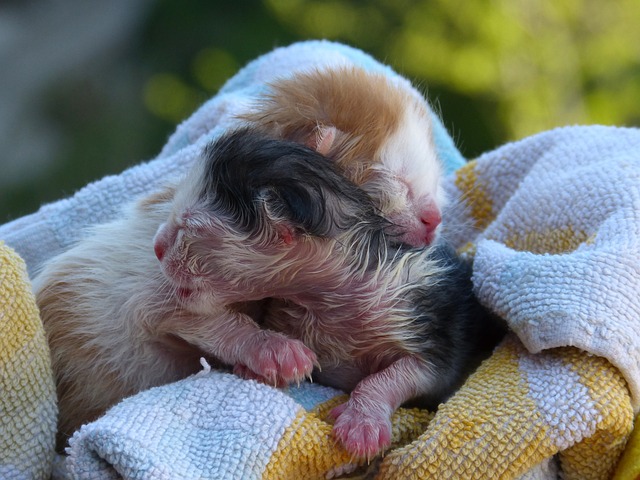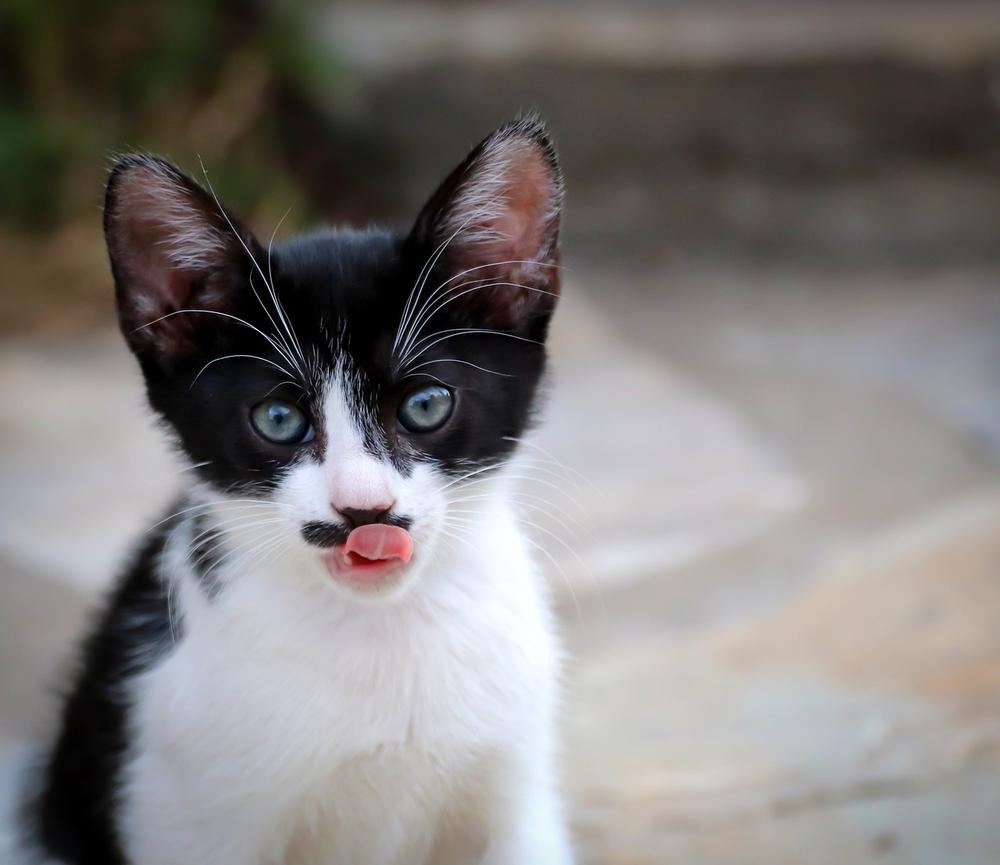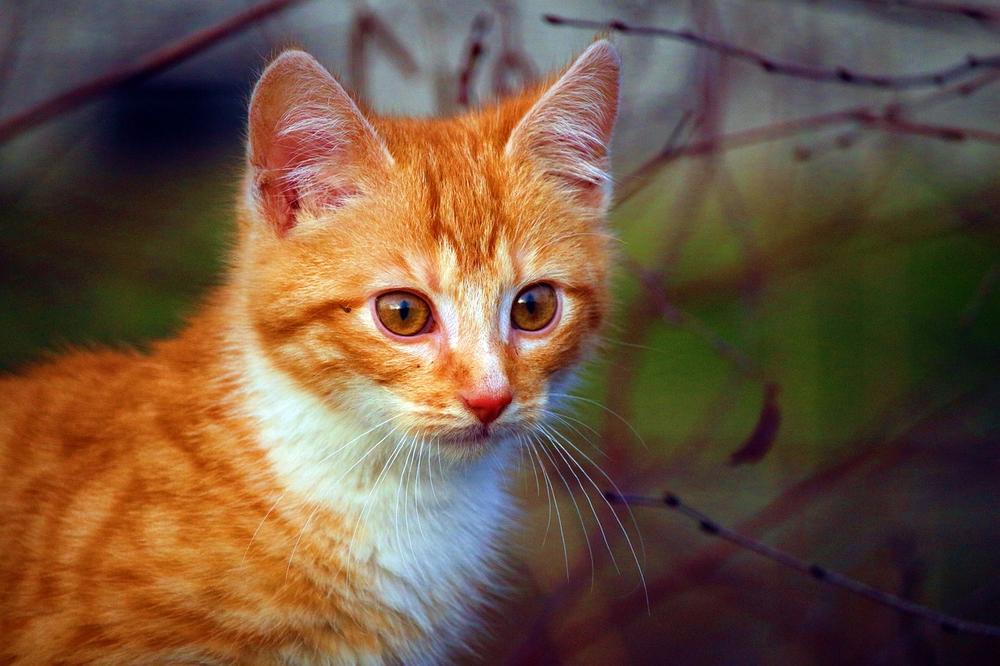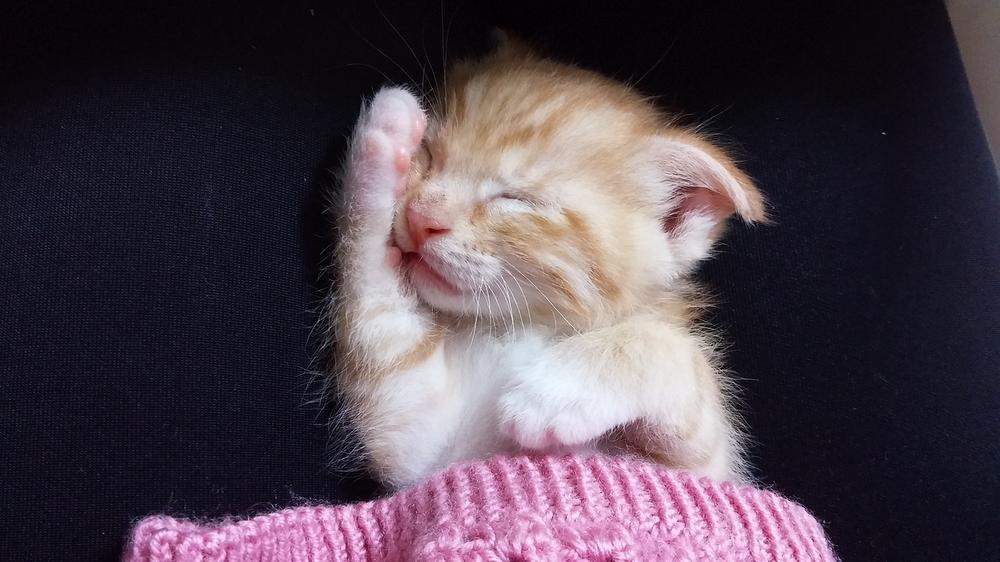Do Newborn Kittens Need Blankets? Myth vs. Reality

Ever wondered if newborn kittens need blankets?
Do you find yourself fretting over their comfort and safety?
Well, you have come to the right place.
I feel ya – you're a caring soul, wanting to provide the best for those tiny bundles of fur.
You probably catch yourself wondering if they need that extra layer of coziness, just like we humans do.
Don't worry, I've got you covered. 😊
So sit back, relax, and let's dive into the world of newborn kittens and their need for blankets.
Hang on tight, it's going to be a wild ride!
Can Newborn Kittens Suffocate Under Blankets?
When it comes to newborn kittens and blankets, there are some important things to consider.
First and foremost, you need to check the temperature in the room to make sure it's not too hot or cold for the little ones.
Adjust it accordingly before using any blankets.
Now, while it's generally okay to use a blanket to keep newborn kittens warm, you have to be extra careful not to cover their faces.
Just like with babies, you don't want anything obstructing their breathing.

But here's the thing:
It's best to avoid letting them sleep under blankets altogether.
There is a small risk of suffocation, especially for young kittens who may struggle to find their way out if they become trapped.
On the other hand, adult cats can safely sleep under blankets because most blankets allow enough oxygen to pass through.
To sum it up:
- Check the temperature in the room before using blankets.
- Avoid covering the kittens' faces with blankets.
- Keep newborn kittens from sleeping under blankets due to potential suffocation risks.
- Adult cats can sleep under blankets without issue.
Safety should always come first when it comes to your furry friends.
And while you should ensure the safety of newborn kittens with blankets, there are also several other aspects of their care and well-being that need attention.
Here's what I recommend for keeping them comfortable and healthy...
Caring for Neonatal Kittens
Taking care of newborn kittens requires a whole lot of attention and TLC.
First things first, these little bundles of fur are completely blind and deaf, so they need constant warmth from you.
You can either use your body heat or a heating pad covered with a soft blanket/towel to keep them cosy.
Keeping their hygiene in check is also vital.
Give their coat a gentle brush, trim their tiny nails, lay down whelping pads, and always wash your hands before and after handling them. Clean the whelping area regularly and change their bedding every day.
Now, when it comes to cleaning them, no dunking in water... Simply use a damp washcloth to gently wipe them clean and ensure they're fully dry.
Around the age of 4 weeks, you can start teaching them how to use the litter box.
Get a shallow litter pan and non-clumping litter for them.
To help them understand what to do, gently stimulate them with a warm washcloth or cotton ball until they catch on to using the litter box on their own.

Keeping a close eye on them and getting regular veterinary care is crucial.
Watch out for any unusual signs or issues.
And please, don't forget to keep them warm and seek immediate veterinary assistance if they experience diarrhea or respiratory problems.
Hold off on flea treatments until they reach 6 weeks old, and consult your vet about starting deworming treatment around 10 days old.
Oh, and don't overlook grooming and trimming their claws!
It's important for preventing hairballs and snags. And guess what?
They need some socialization too!
Make sure they get comfortable being around people and introduce them to activities like visits to the vet and toothbrushing.
With lots of love and proper care, these teeny kittens will grow up strong and healthy! 😺
And now, let's dive into the important topic of providing a cozy bed for newborn kittens that will keep them warm and safe during those critical first few weeks of life:
Nighttime Bedding Essentials for Newborn Kittens
When it comes to nighttime bedding for newborn kittens, there are a few things you should know to keep them comfy and safe.
- Use soft blankets. They'll keep the kittens warm since they can't regulate their own body temperature yet.
- Layer the bedding with fleece blankets. It'll make it extra cushy and cozy for the little furballs to curl up on.
- You might want to think about adding heating pads under the blankets. That way, they get some extra warmth without getting overheated.
- Make a DIY cat bed in a quiet spot where the kittens won't be bothered. Design it so it can accommodate multiple kittens of all ages. That way, they have their own special place where they feel secure.
- Don't cover the kittens' faces with blankets or towels. We definitely don't want any suffocation risks!
- As the weeks go by, gradually lower the temperature in the queening box or nesting area. Start with a warmer setting and bring it down to around 75 degrees by the fourth week. This mimics how their environment would naturally change as they grow.
Newborn kittens can develop strength and good health when provided a cozy and secure sleeping area, which can be achieved by taking into account these recommendations.
And for those of you wondering how to ensure your kittens stay cool and comfortable during the summer months, I've got you covered.
During my research, I found some great tips and tricks that I share in my blog post How to Keep Cats Cool in Summer Without Ac.
By implementing a few simple changes, you can create a haven for your furry friends, without relying on air conditioning.
Feeding Your Newborn Kittens
Supplemental feedings can help stimulate milk production
Feeding newborn kittens is not easy, but I have a few tips to help you give them the nutrition they need.
Even if the mother cat is around, it's a good idea to give the kittens some extra food just to ensure they are getting enough to eat.
Gradually transition from liquid to solid food
When the kittens start walking and their eyes open, you can start giving them solid food.
But remember, if they are under four weeks old, don't give them solid food yet.
Slowly introduce high-quality kitten food during the weaning process.
Follow feeding guidelines for proper development
While weaning the kittens, ensure to give them age-appropriate and nutritious kitten food.
Feed them every 2 hours and guide them towards their mother's nipples for nursing.

Don't forget to check their poop regularly as it can indicate any health issues.
If the mother cat is absent or unable to nurse, use kitten milk replacement. And don't forget to warm up the kittens before using specialized bottles and nipples.
Adjust the nipple hole size based on their needs, sterilize the bottles, and wash your hands before and after each feeding. Hold the kittens or place them on their stomachs with warm formula while feeding.
Don't use cow's or goat's milk as it may cause diarrhea.
After each feeding, gently burp the kittens to help them digest.
If the mother cat is not around, make sure to use special formula.
Also, consider giving older kittens cat supplements to boost their immune system and all in all health.
Kitten Weight Gain and Developmental Milestones
Gently feeling the ribs and spine lets you assess body condition scores and pick up on weight changes in kittens.

This is key to their in essence health, so you should keep a close eye on their weight and monitor their growth.
Weighing newborns daily and ensuring steady weight gain is crucial for their development.
And don't forget, handling them carefully and weighing them regularly also helps with their socialization process.
Final thoughts on newborn kittens and blankets
- Use blankets to keep newborn kittens warm, but avoid covering their faces.
- Avoid letting kittens sleep under blankets to prevent suffocation.
- Provide constant warmth for neonatal kittens, using body heat or a heating pad covered with a blanket/towel.
- Practice good hygiene, including brushing, nail clipping, and regular cleaning of the whelping area and bedding.
- Gradually introduce litter training and stimulate elimination until kittens learn to use the litter box independently.
- Regular monitoring and veterinary care are essential for kittens' health and well-being.
- Avoid flea treatments until kittens are 6 weeks old, and follow deworming treatment guidelines.
- Regular grooming and claw trimming prevent hairballs and snagging.
- Socialization is crucial for establishing trust and friendly behavior.
- Provide a warm and cozy bed for newborn kittens, using soft blankets and layered materials.
And that wraps up today's article.
If you wish to read more of my useful articles, I recommend you check out some of these: Why Do Cats Rub Their Eyes, Can a Nursing Cat Get Pregnant, How to Bottle Feed a Kitten That Wont Eat, Cat Without Whiskers, and Pregnant Cat Breathing Fast
Talk soon,
-Sarah Davis